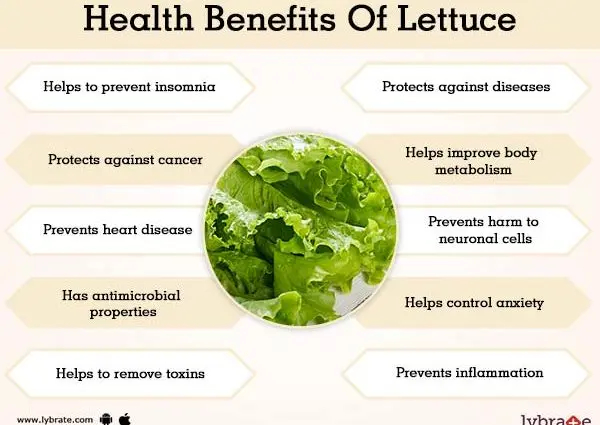Lettuce is a popular leafy green vegetable known for its crisp texture and refreshing taste. It is low in calories and rich in essential nutrients, making it a healthy addition to any diet. Lettuce is a good source of vitamins A, C, and K, as well as folate and fiber. These nutrients support overall health and may help reduce the risk of chronic diseases.
A single cup of shredded lettuce (approximately 36 grams) contains only 5 calories, making it an excellent choice for those looking to manage their weight. Lettuce is also high in water content, which can help keep you hydrated. In terms of vitamins and minerals, lettuce is particularly rich in vitamin A, providing 148% of the recommended daily intake. It also contains vitamin K (102% of the RDI), vitamin C (5% of the RDI), and folate (10% of the RDI).
Lettuce Nutritional Information
How to Incorporate Lettuce Into Your Diet
There are many ways to enjoy lettuce as part of a healthy diet. You can use lettuce leaves as a base for salads, wraps, or sandwiches. You can also add shredded lettuce to soups, stir-fries, and smoothies for extra crunch and nutrition. Experiment with different types of lettuce, such as romaine, iceberg, or butterhead, to find your favorite variety.
Conclusion
In conclusion, lettuce is a nutrient-dense vegetable that can be a valuable addition to a balanced diet. Its low calorie content and high water content make it a great option for weight management and hydration. With its abundance of vitamins and minerals, lettuce offers numerous health benefits and can be enjoyed in a variety of dishes. Consider incorporating more lettuce into your meals to reap the nutritional rewards.
